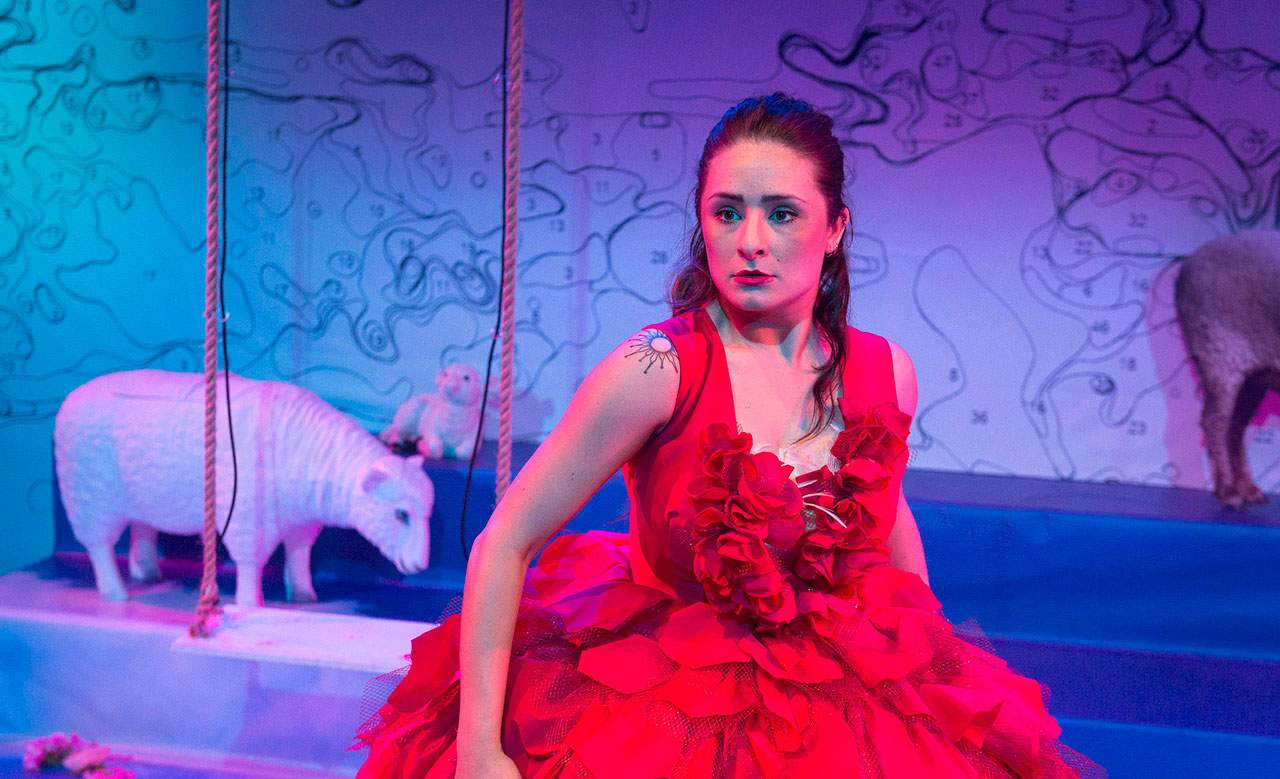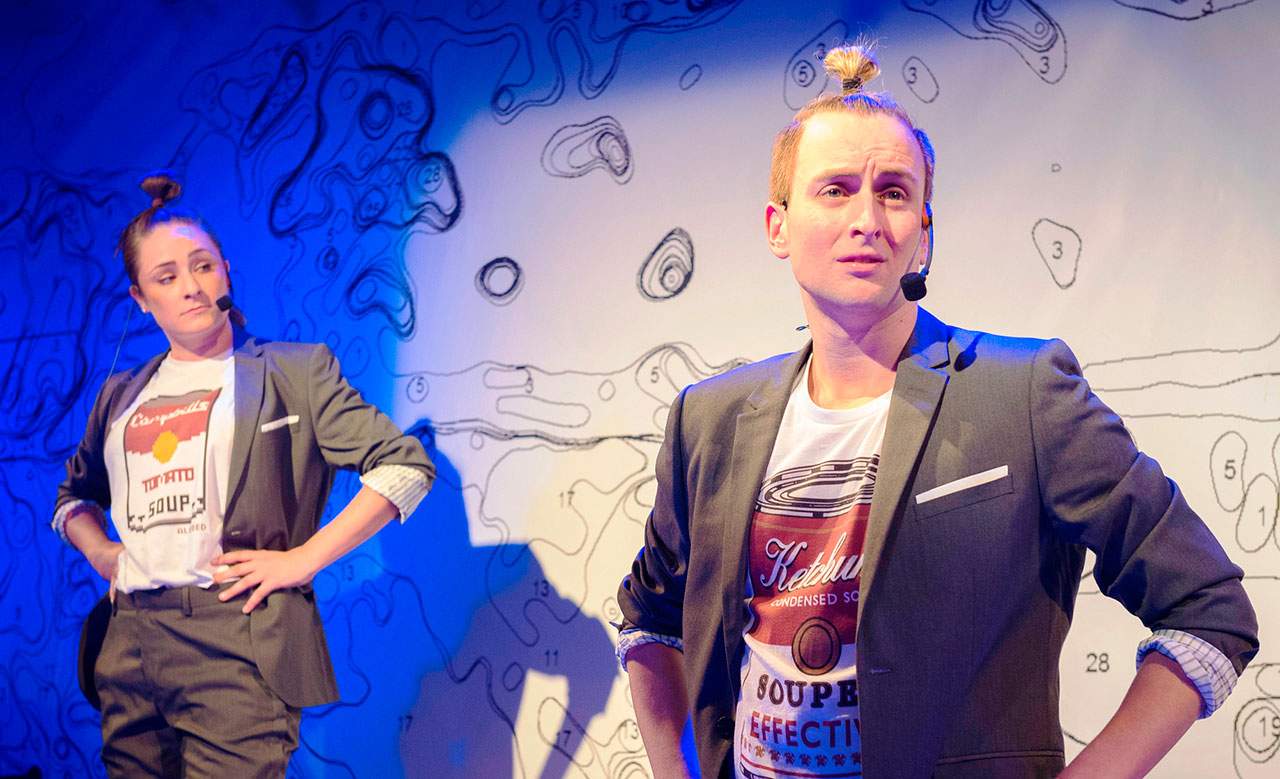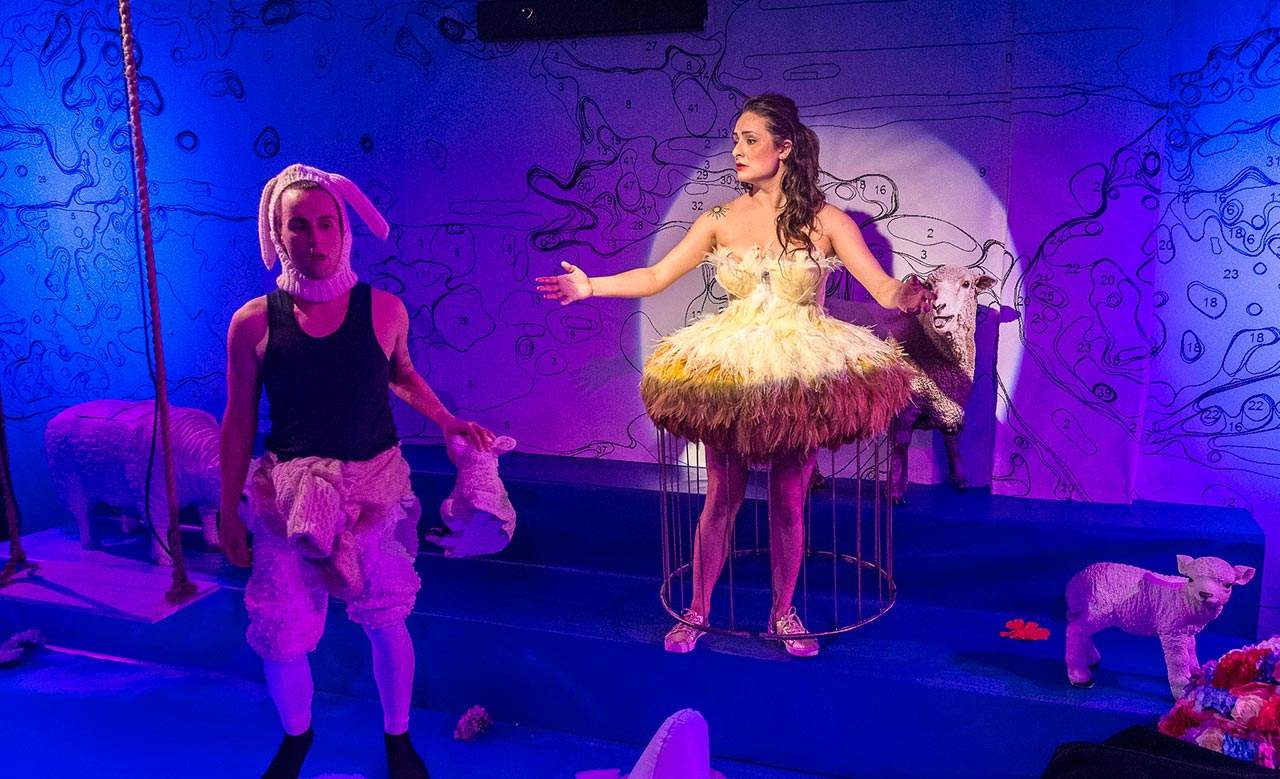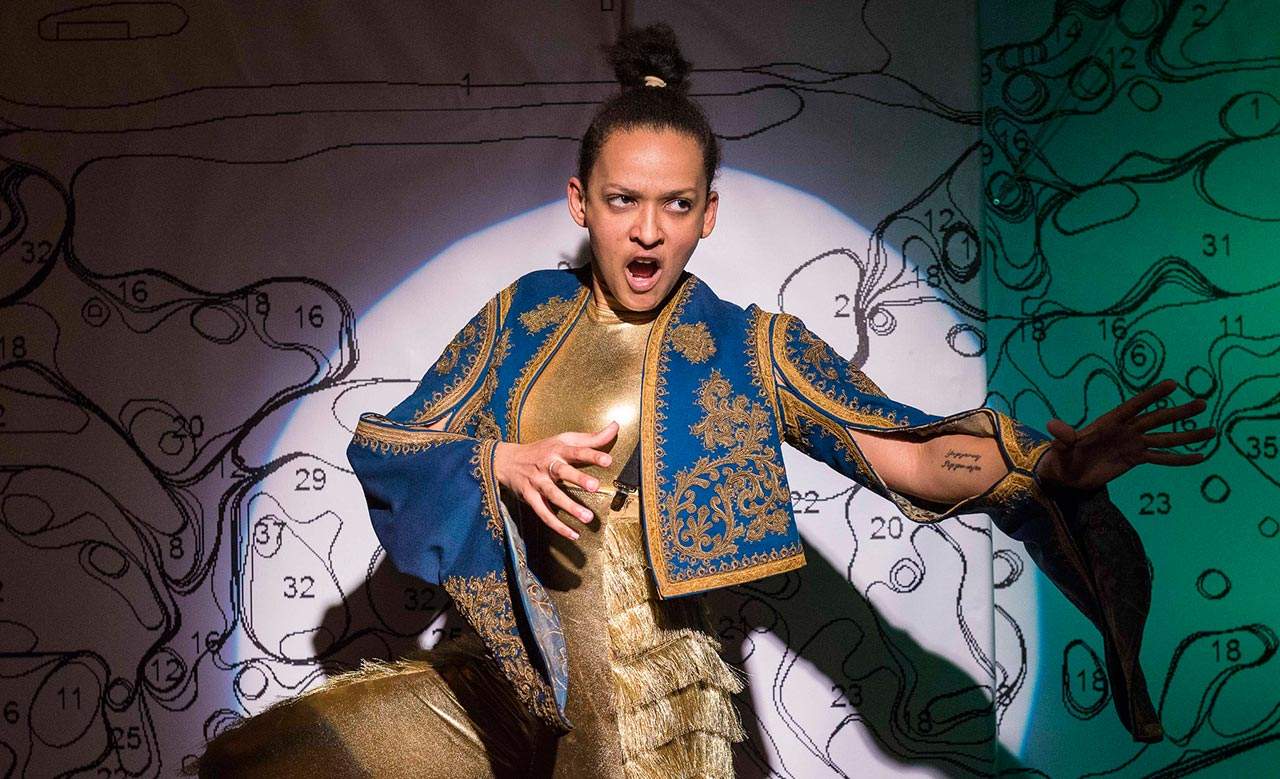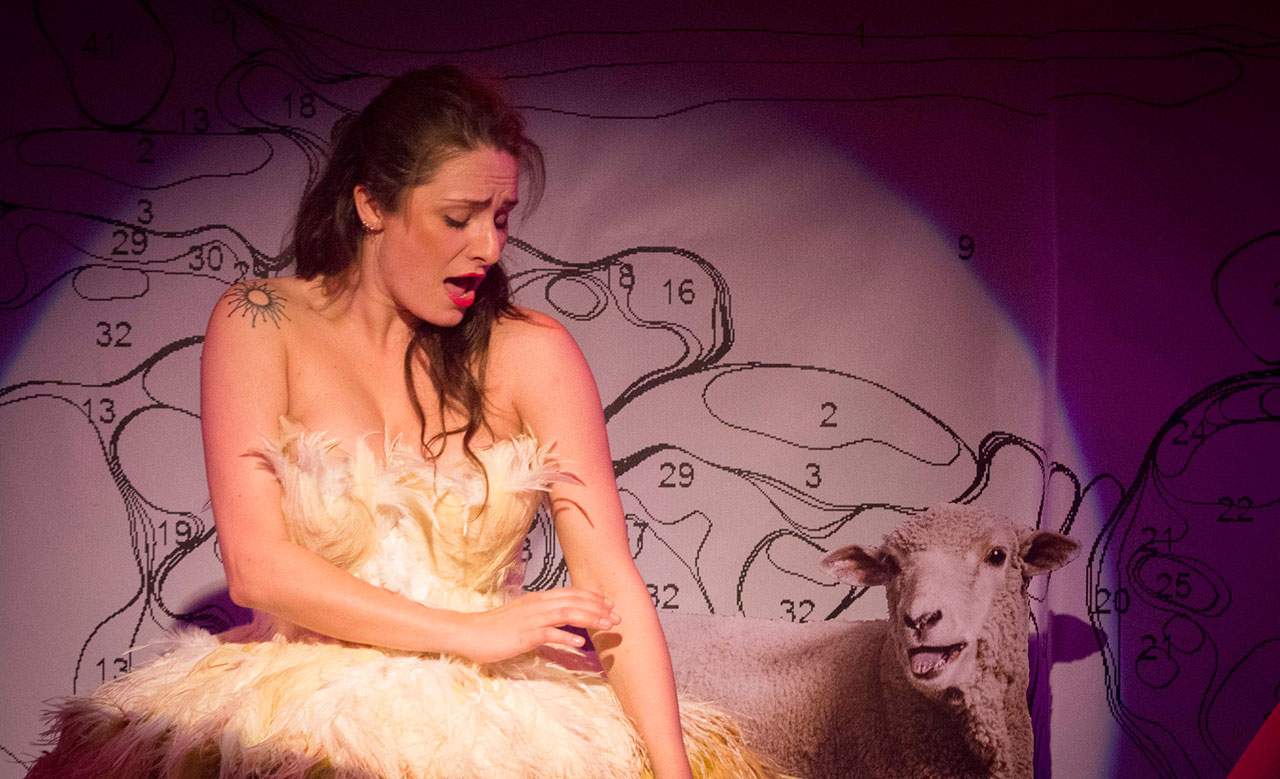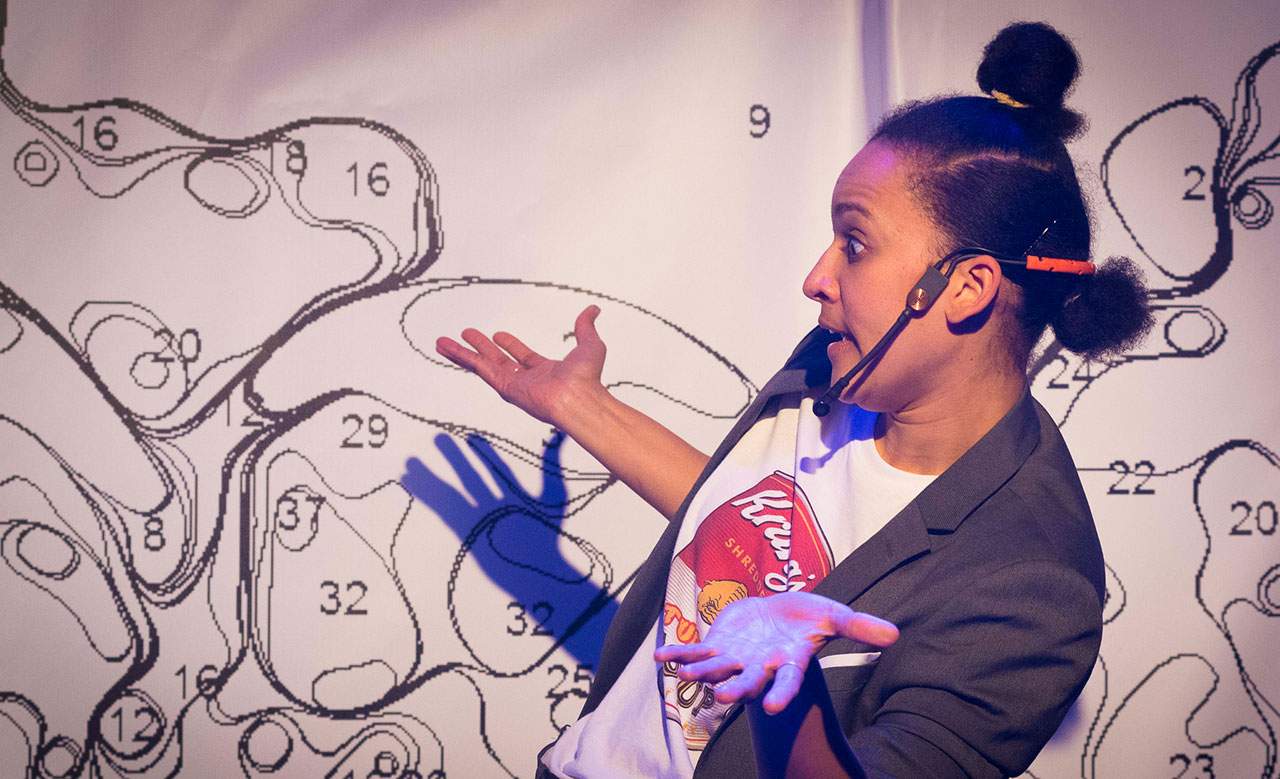La Traviata - Sisters Grimm and Belvoir
The Sisters Grimm present a unique take on opera — and Australian arts funding.
Overview
La Traviata is billed as part opera, part protest, part drag show. One wonders whether a simpler approach might have helped the Sisters Grimm land a few more of their punches.
Okay, full disclosure: I’m no opera fan. In answer to any question regarding Giuseppe Verdi’s 17th-century opera, I will readily give the same reply I give to any enquiry about any opera from any era: “Oh yes. That’s the one with the viking helmets, isn’t it?” That said, this latest offering from queer theatre collective Sisters Grimm, while entertaining in parts, feels quite confused about what it is trying to achieve.
La Traviata (directed and co-created by Declan Greene) is a ‘plundering of the canon’ which takes one of the most frequently performed operas in Australia and uses it as a lens through which to examine the state of the arts. A (literal) paint-by-numbers backdrop, an unironed sky-tarp, an inflatable swan and bouquet-adorned exercise balls are part of a set design by Marg Horwell that, in addition to some fabulously bizarre period costuming (also by Horwell), turn Downstairs Belvoir into a garage sale sanctioned by Queen Victoria.
Satire and parody obviously play a large part in proceedings (don’t take my word for it — ask the giraffe). Both the operatic form and the excesses of major Australian arts companies are skewered. But for a show relying so heavily on Verdi’s source material to frame, among other things, debates about Australian arts funding, there is surprisingly little effort expended to situate the audience within this narrative. Unlike, say, Mel Brooks’ Robin Hood: Men in Tights, which retells the famous myth with frequent comedic pit-stops, here, a couple of sentences quickly scrolling across a small, wall-mounted screen at the start of each act provide little context for the deconstruction that follows.
Pacing also becomes an issue once we get into the back end. The first half is manic, bursting with energy and comedy. But the transition to a relatively sober second half is a rough one. The stage is stripped, of props and verve, and an audience Q&A session feels vaguely like an admission of defeat. Michael Lewis’s finale is impressive, but after the thorough razzing of opera that we’ve just witnessed (can Emma Maye Gibson’s transformation from opera singer to ape really be read any other way?), it seems disingenuous to hope that an audience would appreciate its beauty.
The cast — Ash Flanders, Emma Maye Gibson, Michael Lewis and Zindzi Okenyo — all work feverishly throughout the show. But ultimately La Traviata doesn’t feel like it has its hooks deep enough in Verdi’s work or the political issues to really make it sing.
